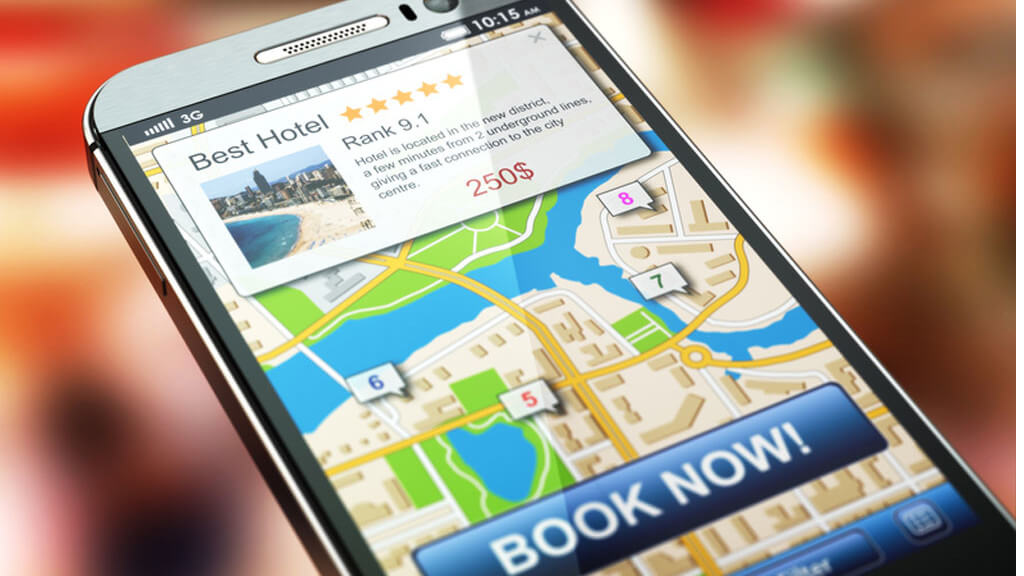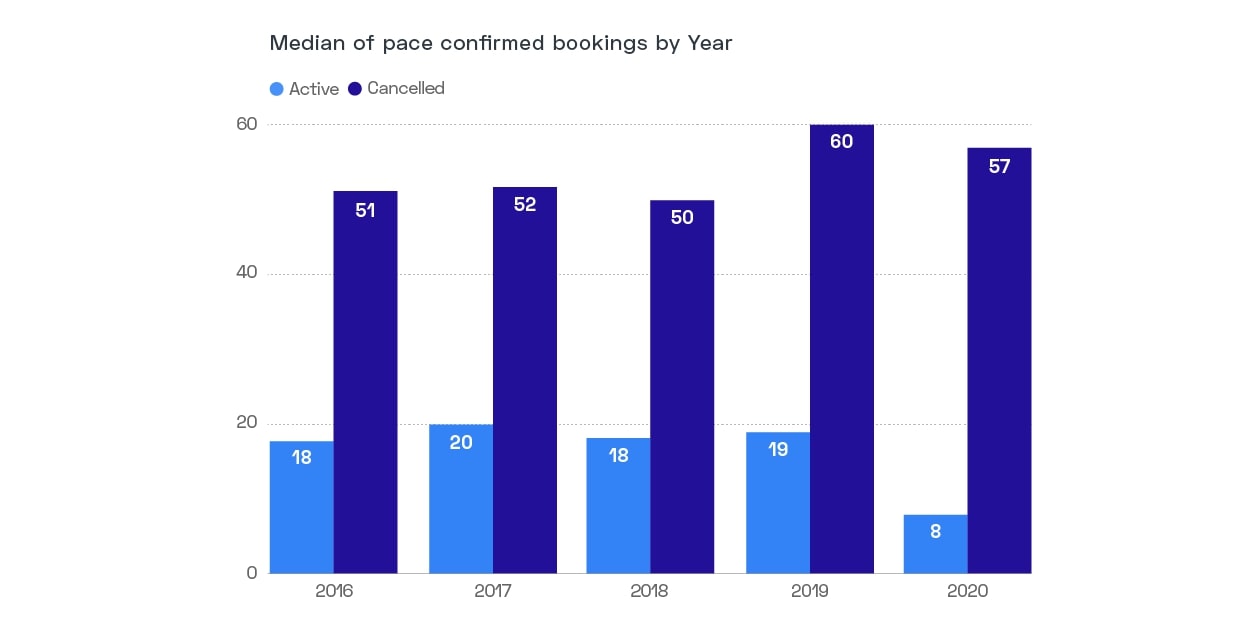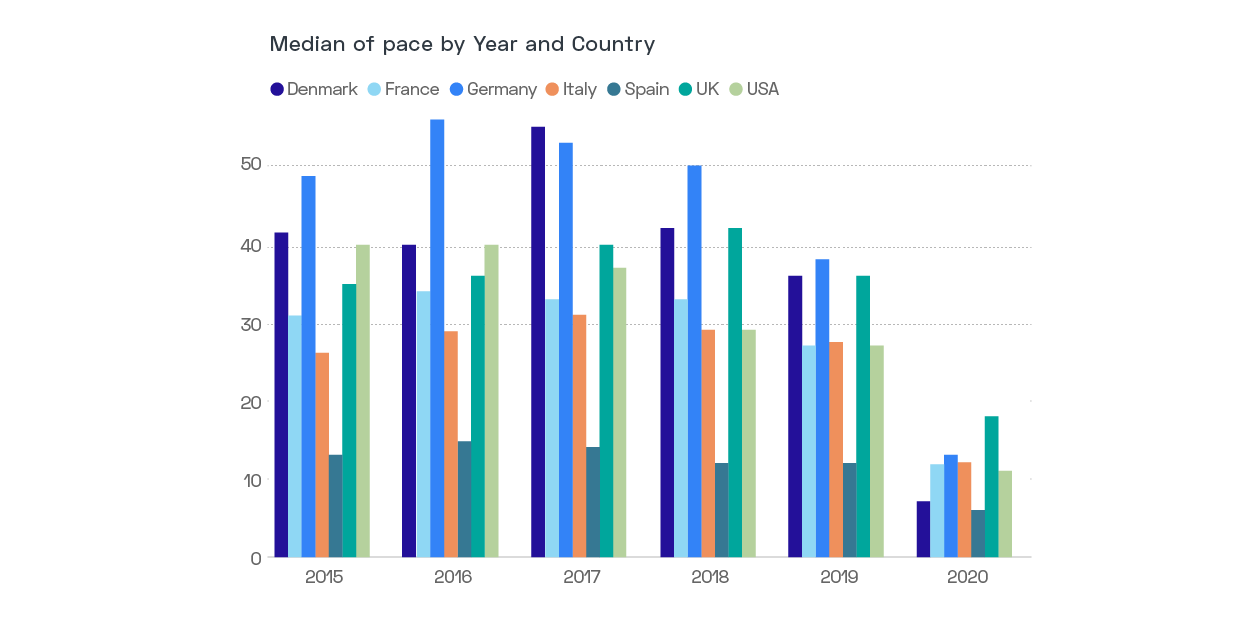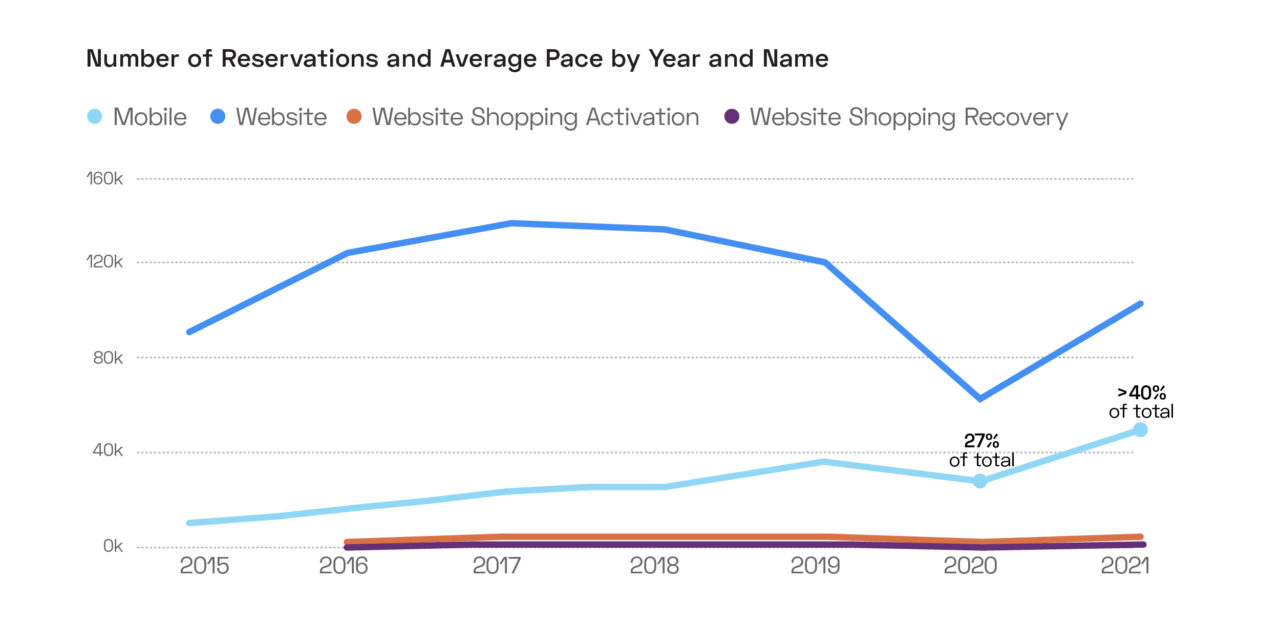
If there is one thing Hoteliers have gained from the past 2 years of recession, it’s the rise in hotel direct bookings, and more specifically, mobile direct bookings.
NB: This is an article from Guestcentric
As the app economy continues to grow and hotels encourage guests to have direct transactions, it is expected that mobile will continue to play a crucial role in increasing hotel direct bookings in 2022. We analyze the rise of mobile bookings over the past two years, how it is expected to continue growing in 2022, and how Hoteliers should adapt their online sales and marketing strategies to meet this rapidly-growing demand.
Subscribe to our weekly newsletter and stay up to date
The Rise of Mobile Direct Bookings in 2020
2020 is a year that most hotels don’t want to remember, with many closing their doors in both the first and second waves of the pandemic. From a different viewpoint, consumer behavior changed dramatically and hotels had to adapt. As more consumers turned mobile to make hotel bookings, Hotels needed to adapt their mobile technologies to meet this demand.
Two of the dominant drivers behind this development in consumer behavior was the drastic shortening of booking pace and the rise of millennial travelers during the first year of the pandemic. Below, we dive deeper into these drivers:
Booking Pace
Although overall booking pace remained in line with 2019 at 57 days, for confirmed reservations the booking pace declined to a mere 8 days in 2020. This was likely due to changing travel restrictions which forced most guests to cancel longer-term bookings and confirm their stays last-minute.

Hotels tried to stimulate bookings with flexible cancellation policies, but the uncertain environment forced consumers to book last-minute. We observed this trend across all markets that represent our portfolio of hotels. Even guests that traditionally plan their stays further in advance (Danish, Germans, British) saw booking pace decline from 26 days to a mere 12 days or less.

The preferred channel for these last-minute bookings was mobile. By the summer of 2020, according to the data processed by over 1,500 hotels within our portfolio, mobile bookings increased to over 24%, almost one-quarter of all hotel bookings.
Although booking pace steadily increased in 2021 vs 2020, this rise in mobile hotel bookings shows no sign of slowing down. In 2020, on average, mobile bookings represented over 27% of total bookings for hotels studied, rising to 40% in 2021.

In effect, this means that mobile bookings doubled in just two short years. We expect this trend to continue in 2022 and beyond.
Millennials
Millennials (born between 1981 and 1996) are officially entering middle-age and represent nearly 32% of the global population, according to recent global travel statistics published by Condor Ferries UK.
Contrary to popular misconception, millennials are not teenagers anymore. Yet unlike their predecessors, this generation is characterized by an insatiable thirst for enriching experiences and living for the moment, which manifests through extensive travel. This makes their $200 billion buying power, as shown in the recent data above, impossible for the industry to ignore.
In addition, a report by Expedia shows millennials are largely contributing to the rise in mobile bookings globally. Approximately 66% of millennials book their trips using a smartphone, while 74% use it to research.
How are Mobile Bookings expected to Grow in 2022?
According to forecasts by KPMG and Facebook, the growth in mobile bookings shows no signs of slowing down, indicating that 9 in 10 bookings will be mobile by 2022. In December 2021, year to date, our research shows that mobile represented nearly 30% of total bookings.




